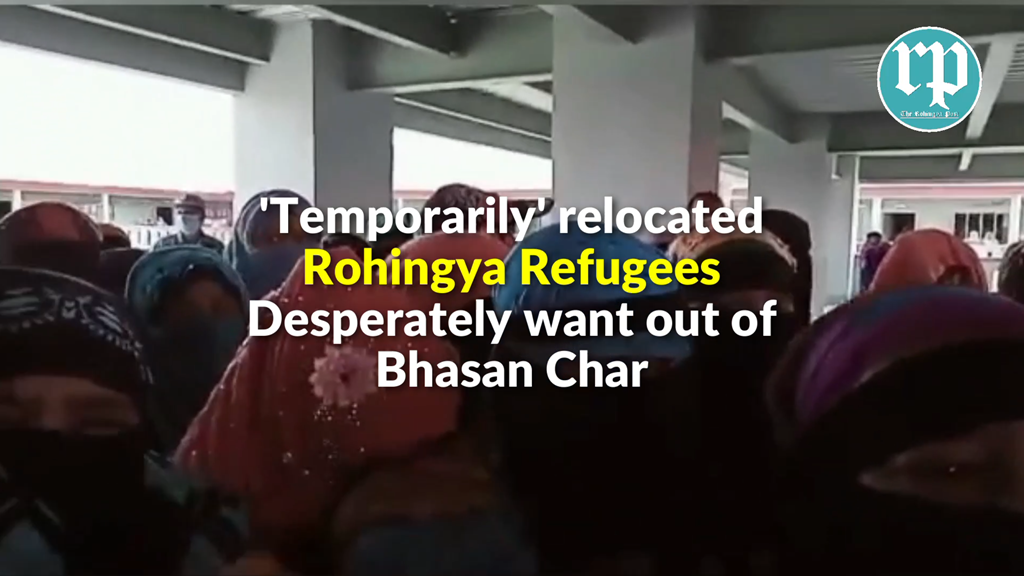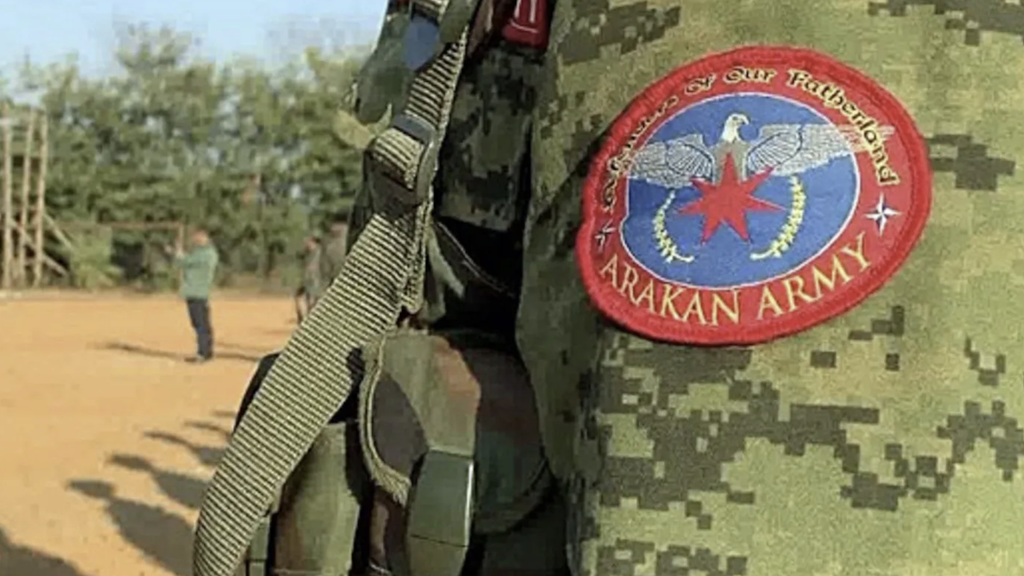
Desperate Rohingya Refugees Want out of Ghostly ‘Floating Island’
- 06/09/2020
- 0
By The Rohingya Post
Bangladesh arranged a 40-strong delegation team to visit Bhasan Char where the first batch of ‘temporarily’ relocated Rohingya refugees met in desperation to get out of the island
On Sunday, the Rohingya delegation comprised of six Rohingya imams, two women, refugee camp “mahjis” (leaders of camps) and other individuals arrived at the shores of Bhasan Char, the island emerged from silt in the Bay of Bengal in 2006.

The island which translates into “Floating Island” is under heavy constructions to relocate over 100,000 Rohingya refugees from Cox’s Bazar region.
The relocation plans that the government of Bangladesh were seriously condemned by human rights groups, Rohingya and the international community for the island’s difficult access, its isolation, flood-and-typhoon prone nature and the lack of vegetation and permanent settlements.
Despite the global outcry, Bangladesh has relocated over 300 Rohingya refugees who were rescued after their boats were stranded in seas for months after failing to reach Malaysia in April 2020.
Among the relocated refugees were women and children traumatised in the seas and persecuted in their native country Myanmar.
The delegation met the relocated refugees, who are visibly dejected and traumatised in the ghostly island where their future is unknown.
Dozens of Rohingya women cried for help to desperately wanting to get out of the island.
A woman pleaded, “O God! We don’t want to live here!”
She and other women were consoled by the security guards as they wept and wanted to join the delegation in order to get out of the island.
During the meeting in a hall of newly built refugee shelter on the island, Rohingya men and boys were also seen crying in the videos taken by the delegation.
In another video where the delegation met the women, there was a despairing scene of women crying and weeping to return to the mainland.
“We are a people who suffered horrible crimes. We are not a people who committed horrible crimes. Why are we being treated like prisoners? Why are we being imprisoned in a faraway island? We fled into Bangladesh for safety. Now we will lose hope returning home to Myanmar while we continue to be traumatised on this island,” a Rohingya man under anonymity expressed his concerning views.
An elderly Rohingya from Balukhali refugee camp in Cox’s Bazar echoed the similar concerns, “We were told that the relocation would be temporary. Since the delegation is brought, we are worried that the relocation to the island will forcefully be made permanent. Once we are relocated, we will lose hope of returning home.”
On August 25, the Rohingya community marked the third year of Rohingya Genocide Remembrance Day to commemorate the latest campaigns of genocide against Rohingya by Myanmar which has forced over 750,000 Rohingya to flee their home from northern Rakhine State.
Now over a million Rohingya refugees find themselves across the border in Bangladesh where they continue to live without justice, accountability of the genocide and face the prospects of losing hope to return to Myanmar with protection and safety, and restored rights. At the same time, they also live in fear of being forcefully relocated to the ghostly “Floating Island”.






